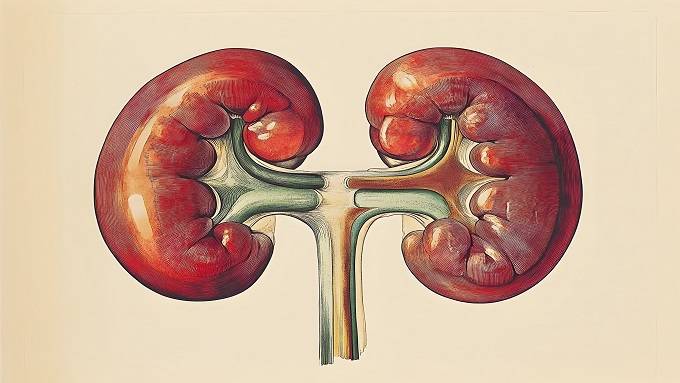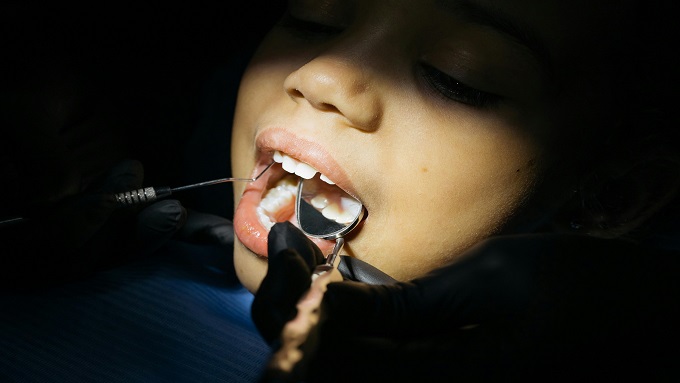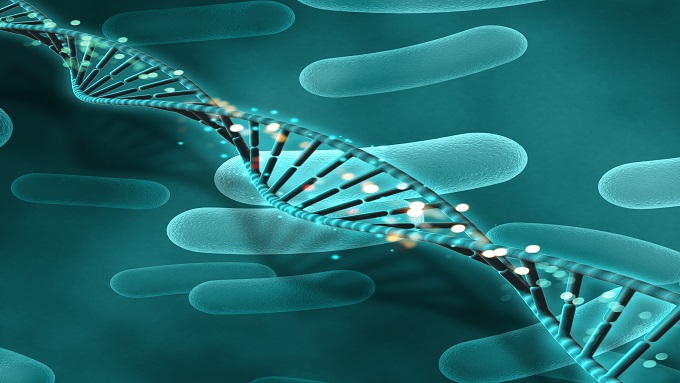DEPLETION OF LYSYL OXIDASE-LIKE 4 (LOXL4) ATTENUATES COLONY FORMATION IN VITRO AND COLLAGEN DEPOSITION IN VIVO BREAST CANCER MODEL

Downloads
Highlights
- Revealing LOX family members' mechanisms in promoting invasive breast cancer progression is essential for targeting specific molecules in invasive breast cancer.
- Depletion of LOXL4 in invasive breast cancer shows attenuation of cell invasiveness in vitro and collagen deposition in tumor models in vivo.
Abstract
Background: Lysyl oxidase (LOX) family proteins have recently become a topic in cancer progression. Our recent study found a high expression of LOX-like 4 (LOXL4) in MDA-MB-231 cells. Objective: To reveal the impact of depleted LOXL4 in both in vitro and in vivo breast cancer models from a histological perspective. Material and Method: Endogenous LOXL4 was depleted using the CRISPR/Cas9 on MDA-MB-231 parental cells. Based on the LOXL4 protein expression, the clone was determined for the next experiment, thus generating MDA-MB-231 LOXL4 KO. Cell assay was conducted using colony formation assay (n=3) followed by crystal violet staining. The indicated cells were inoculated orthotopically to female BALB/c nude mice (n=5). At the end of the experiment, tumors were isolated, fixed, and prepared for Masson Trichrome staining. Result: CRISPR/Cas9 completely depleted LOXL4 expression on clone number #2-22. Depletion of LOXL4 reduced the colony size formed by MDA-MB-231 cells. MDA-MB-231 LOXL4 KO #2-22 derived tumors showed depressed tumor volume compared to the parental group. Reduced collagen was also observed from the Masson Trichrome staining (p<0.001). Conclusion: Depletion of LOXL4 downregulates the growth of MDA-MB-231 cells in vitro and collagen deposition in vivo.
Brassart-Pasco, S., Brézillon, S., Brassart, B., et al. 2020. Tumor microenvironment: Extracellular matrix alterations influence tumor progression. Frontiers in Oncology, 10. doi: 10.3389/fonc.2020.00397.
Chen, W., Yang, A., Jia, J., et al. 2020. Lysyl oxidase (LOX) family members: Rationale and their potential as therapeutic targets for liver fibrosis. Hepatology, 72(2): 729–741. doi: 10.1002/hep.31236.
Choi, S. K. Kim, H. S., Jin, T., et al. 2017. LOXL4 knockdown enhances tumor growth and lung metastasis through collagen-dependent extracellular matrix changes in triple-negative breast cancer. Oncotarget, 8(7): 11977–11989. doi: 10.18632/oncotarget.14450.
Grau-Bové, X., Ruiz-Trillo, I., Rodriguez-Pascual, F. 2015. Origin and evolution of lysyl oxidases. Scientific Reports, 5(1): 10568. doi: 10.1038/srep10568.
Hirabayashi, D., Yamamoto, K. I., Maruyama, A., et al. 2023. LOXL1 and LOXL4 are novel target genes of the Zn2+-bound form of ZEB1 and play a crucial role in the acceleration of invasive events in triple-negative breast cancer cells. Frontiers in Oncology, 13. doi: 10.3389/fonc.2023.1142886.
Hong, X., Yu, J. 2019. Silencing of lysyl oxidase"‘like 2 inhibits the migration, invasion and epithelial"‘to"‘mesenchymal transition of renal cell carcinoma cells through the Src/FAK signaling pathway. International Journal of Oncology. doi: 10.3892/ijo.2019.4726.
Huang, J., Ngai, C. H., Deng, Y., et al. 2022. Cancer incidence and mortality in Asian countries: A trend analysis. Cancer Control, 29: 107327482210959. doi: 10.1177/10732748221095955.
Komalasari, N. L. G. Y., Tomonobu, N., Kinoshita, R., et al. 2023. Lysyl oxidase-like 4 exerts an atypical role in breast cancer progression that is dependent on the enzymatic activity that targets the cell-surface annexin A2. Frontiers in Oncology, 13. doi: 10.3389/fonc.2023.1142907.
Koorman, T., Jansen, K. A., Khalil, A., et al. 2022. Spatial collagen stiffening promotes collective breast cancer cell invasion by reinforcing extracellular matrix alignment. Oncogene, 41(17): 2458–2469. doi: 10.1038/s41388-022-02258-1.
Li, R., Wang, Y., Zhang, X., et al. 2019. Exosome-mediated secretion of LOXL4 promotes hepatocellular carcinoma cell invasion and metastasis. Molecular Cancer, 18(1): 18. doi: 10.1186/s12943-019-0948-8.
Lim, Y. X., Lim, Z. L., Ho, P. J., et al. 2022. Breast cancer in Asia: Incidence, mortality, early detection, mammography programs, and risk-based screening initiatives. Cancers, 14(17): 4218. doi: 10.3390/cancers14174218.
Liu, Y., Liu, X., Chen, F., et al. 2023. LOXL2 promotes tumor proliferation and metastasis by FAK/Src signaling in esophageal squamous cell carcinoma. Electronic Journal of Biotechnology, 63: 18–28. doi: 10.1016/j.ejbt.2023.01.002.
Maller, O., Drain, A. P., Barrett, A. S., et al. 2021. Tumor-associated macrophages drive stromal cell-dependent collagen crosslinking and stiffening to promote breast cancer aggression. Nature Materials, 20(4): 548–559. doi: 10.1038/s41563-020-00849-5.
Microsoft Corporation. 2024. Microsoft Excel for Mac. Available at: https://learn.microsoft.com/en-us/officeupdates/update-history-office-for-mac.
Ohta, Y., Fuji, M., Takahashi, S., et al. 2022. Cell–The cell-matrix interface regulates dormancy in human colon cancer stem cells. Nature, 608(7924): 784–794. doi: 10.1038/s41586-022-05043-y.
Oldfield, R. N., Johnston, K. A., Limones, J., et al. 2018. Identification of Histidine 303 as the catalytic base of lysyl oxidase via site-directed mutagenesis. The Protein Journal, 37(1): 47–57. doi: 10.1007/s10930-017-9749-3.
Rajappa, S., Singh, M., Uehara, R., et al. 2023. Cancer incidence and mortality trends in Asia based on regions and human development index levels: An analyses from GLOBOCAN 2020. Current Medical Research and Opinion, 39(8): 1127–1137. doi: 10.1080/03007995.2023.2231761.
Rajendran, V., Jain, M. V. 2018. In vitro tumorigenic assay: Colony forming assay for cancer stem cells: 89–95. doi: 10.1007/978-1-4939-7401-6_8.
Reynaud, C., Ferreras, L., Di Mauro, P., et al. 2017. Lysyl oxidase is a strong determinant of tumor cell colonization in bone. Cancer Research, 77(2): 268–278. doi: 10.1158/0008-5472.CAN-15-2621.
Shao, J., Lu, J., Zhu, W., et al. 2019. Derepression of LOXL4 inhibits liver cancer growth by reactivating compromised p53. Cell Death & Differentiation, 26(11): 2237–2252. doi: 10.1038/s41418-019-0293-x.
Sharma, R., Abbastabar, H., Abdulah, D. M., et al. 2024. Temporal patterns of cancer burden in Asia, 1990–2019: A systematic examination for the Global Burden of Disease 2019 study. The Lancet Regional Health - Southeast Asia, 21: 100333. doi: 10.1016/j.lansea.2023.100333.
Tan, H., Wang, N., Zhang, C., et al. 2021. Lysyl oxidase"like 4 fosters an immunosuppressive microenvironment during hepatocarcinogenesis. Hepatology, 73(6): 2326–2341. doi: 10.1002/hep.31600.
Vallet, S. D., Ricard-Blum, S. 2019. Lysyl oxidases: From enzyme activity to extracellular matrix cross-links. Essays in Biochemistry. Edited by J. Adams, 63(3): 349–364. doi: 10.1042/EBC20180050.
Winkler, J., Abisoye-Ogunniyan, A., Metcalf, K. J., et al. 2020. Concepts of extracellular matrix remodelling in tumour progression and metastasis. Nature Communications, 11(1): 5120. doi: 10.1038/s41467-020-18794-x.
World Health Organization (2024) Breast cancer, WHO. Available at: https://www.who.int/news-room/fact-sheets/detail/breast-cancer.
Wu, B., Liu, D., Guan, L., et al. 2023. Stiff matrix induces exosome secretion to promote tumour growth. Nature Cell Biology, 25(3): 415–424. doi: 10.1038/s41556-023-01092-1.
Yin, H., Wang, Y., Wu, Y., et al. 2020. EZH2-mediated epigenetic silencing of miR-29/miR-30 targets LOXL4 and contributes to tumorigenesis, metastasis, and immune microenvironment remodeling in breast cancer. Theranostics, 10(19): 8494–8512. doi: 10.7150/thno.44849.
Copyright (c) 2024 Ni Luh Gede Yoni Komalasari, I Gde Haryo Ganesha, I Gusti Nyoman Sri Wiryawan, Nahoko Tomonobu, Masakiyo Sakaguchi

This work is licensed under a Creative Commons Attribution 4.0 International License.
1. The journal allows the author(s) to hold the copyright of the article without restrictions.
2. The journal allows the author(s) to retain publishing rights without restrictions.
3. The legal formal aspect of journal publication accessibility refers to Creative Commons Attribution 4.0 International License (CC-BY).
































